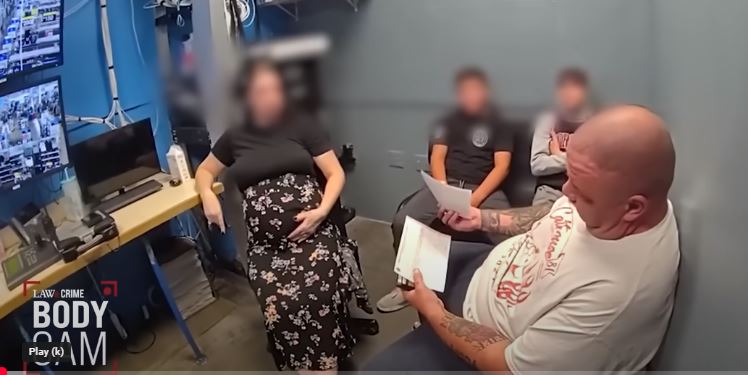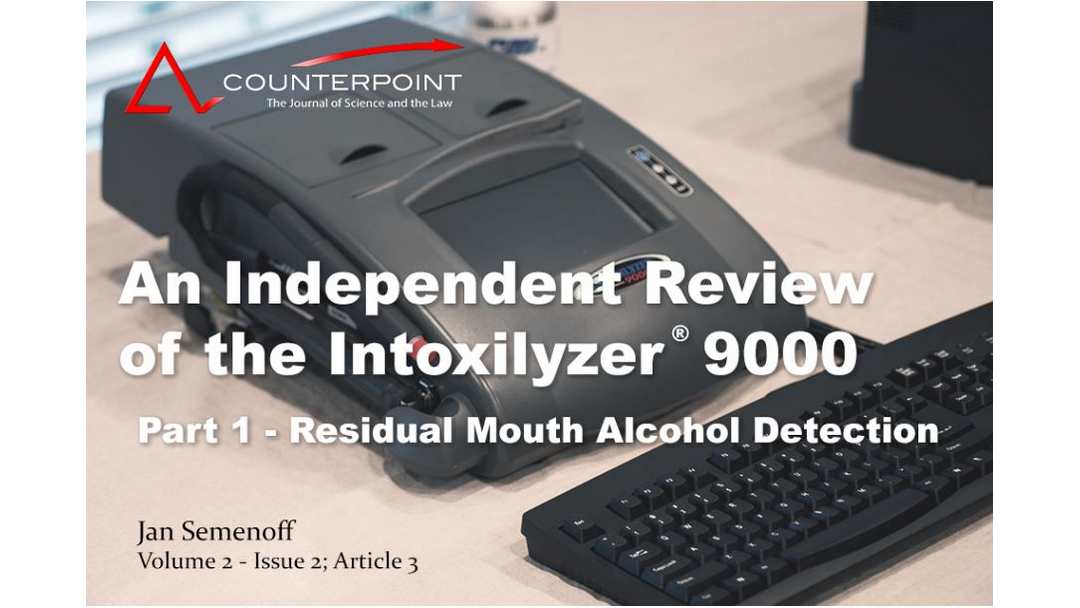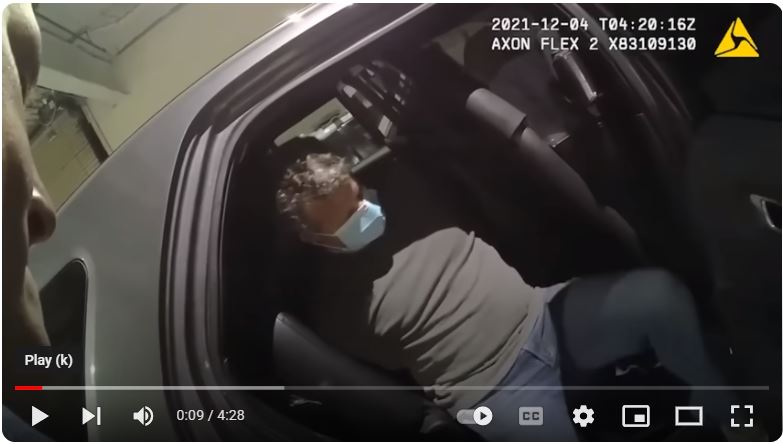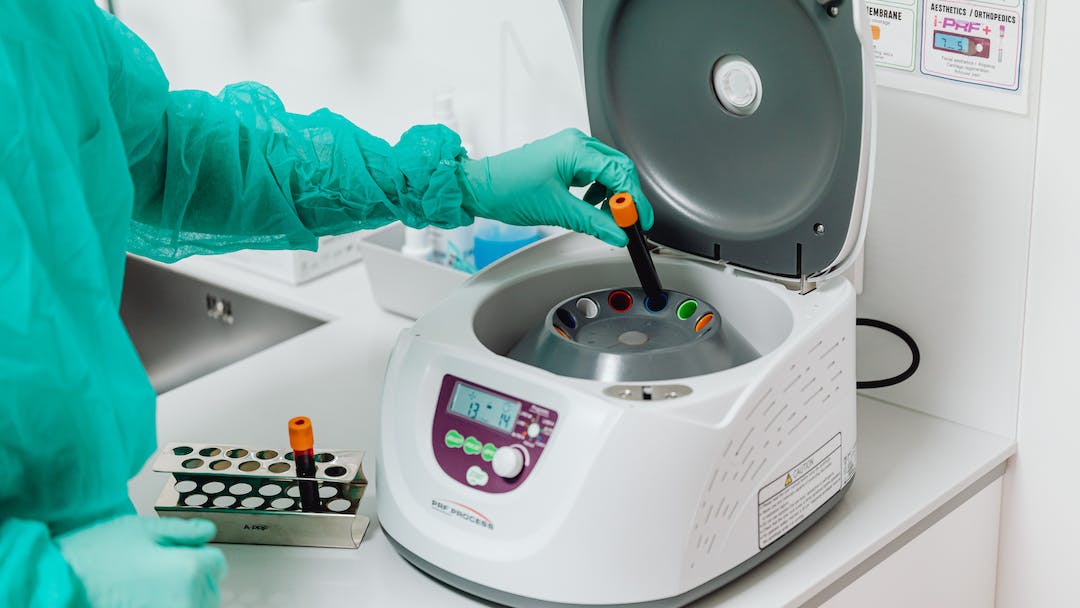
Mar 16, 2024 | Blog, Driving, Driving While High
Redefining Impairment: Beyond THC Levels in Roadside Testing
In recent developments that promise to reshape our understanding of cannabis use and road safety, a federal government report has cast significant doubt on the efficacy of using THC levels as a benchmark for driver impairment. This revelation comes at a crucial juncture in the evolving discourse around cannabis, challenging long-held assumptions and urging a reevaluation of legal and scientific standards.
The Federal Perspective on THC and Impairment
The crux of the debate centers on the assertion by a researcher from the Justice Department, which signals a pivotal shift in federal stance. The department acknowledges the discrepancies between THC levels in the bloodstream and the actual impairment of an individual, especially among regular cannabis users.
This admission underlines a growing consensus that the current metrics for evaluating cannabis impairment might not only be flawed but fundamentally misaligned with the realities of consumption and its effects on the human body.
Frances Scott, a DOJ physical scientist, highlighted in a recent podcast that research funded by the federal government conclusively shows that THC concentration is not well-correlated with impairment for driving.
This insight is supported by studies indicating that chronic and infrequent marijuana users metabolize THC differently, complicating the establishment of a universal impairment threshold based on THC concentration alone.
The Scientific Challenge of THC Impairment Testing
The scientific community has long grappled with the complexities of THC impairment testing. Unlike alcohol, where a .08 blood alcohol content level can serve as a clear marker for impairment, THC’s effects are not as straightforwardly quantifiable.
This complexity is reflected in studies such as those by Hound Labs (2022) and research by Sewell (2019), which explore alternative testing methods and question the correlation between THC blood levels and crash risk, respectively.
This divergence from a simple, numerical standard for impairment necessitates a broader exploration of impairment testing methods.
The Department of Justice, while continuing to research a marijuana breathalyzer, is also exploring alternatives like saliva swabs and assessments of eye functioning, aiming to devise a more accurate measure of impairment.
The Path Forward: Rethinking Impairment Measurement
The acknowledgment of the inadequacy of THC levels as an impairment standard necessitates a reevaluation of how impairment is measured, particularly in the context of driving.
The development of technology like the DRUID app, which assesses impairment through a variety of cognitive and motor tasks, represents a step towards creating more objective benchmarks for marijuana impairment.
However, widespread implementation and acceptance of such technologies in law enforcement practices remain in the nascent stages.
State / Federal Legal Defense
With extensive experience in criminal legal defense since 1993 from pre-arrest, District, Circuit, Appeals, Supreme and the Federal court systems.
KOMORN LAW (248) 357-2550
Legal and Social Implications
The evolving understanding of THC and impairment has profound legal and social implications. As the federal government and researchers work towards establishing a more nuanced approach to evaluating impairment, there’s a pressing need for legal frameworks that reflect these complexities.
The push for an objective standard for marijuana impairment, as seen in recent legislative efforts, underscores the urgency of this issue.
Furthermore, this shift towards a more evidence-based approach to impairment testing holds the promise of creating a more just and equitable legal system.
By moving away from a one-size-fits-all standard based on THC levels, there’s potential to mitigate the risk of unjustly penalizing individuals, particularly those who use cannabis for medical purposes, based on an arbitrary metric.
Federal Government’s Admission
The federal government’s admission that THC levels do not reliably indicate impairment marks a significant step forward in our understanding of cannabis and its effects on driving safety.
This acknowledgment not only challenges existing paradigms but also opens the door to a more informed and nuanced approach to road safety and law enforcement.
As research continues and new technologies emerge, there’s hope for the development of impairment testing methods that accurately reflect an individual’s ability to drive safely, paving the way for fairer legal standards and safer roads for everyone.

Mar 15, 2024 | Blog, Driving, Driving While High, DUI, DUI First Offense, DUI Second Offense, DUI Super Drunk, DUI Third Offense
An Independent Review of the Intoxilyzer 9000
Part 1 – Residual mouth alcohol detection
Counterpoint Volume 2; Issue 2 – Article 3 (August 2017)
An article in the Core Skills III-2 Module
Jan Semenoff, BA, EMA
Forensic Criminalist
The opportunity to conduct an independent analysis and performance review of a new breath alcohol testing device is rare, particularly the higher-end, evidentiary-level units.
Access to these technologies is stringently controlled by both their manufacturers and the police and government agencies that control them.
Additionally, state agencies are often reluctant to publish the results of their official assessments and analysis of the devices.
When given the opportunity to perform such a review on a new Intoxilyzer 9000, I designed a series of experiments to quickly analyze the overall performance of the device.
I attended the device’s location with colleague Tom Workman (1948 – 2019) to determine its suitability and reliability in a number of key areas, including:
- Overall design and ease of use
- Accuracy in determining in vitro [2] BrAC levels using a simulator
- The ability of the device to determine the presence of Fresh Mouth Alcohol using a Residual
- Alcohol Detection System (RADS) or the so-called “slope detector”.
- Reliability in reporting BrAC [3] readings that are highly specific to ethanol
- The effect of Radio Frequency Interference on the device [4]
This article will provide a general overview of the operational characteristics of the Intoxilyzer 9000. We will additionally look at the apparent accuracy of the device using simulator readings, and examine the ability of the device to “flag” false positive reading caused by fresh mouth alcohol contamination.
State / Federal Legal Defense
With extensive experience in criminal legal defense since 1993 from pre-arrest, District, Circuit, Appeals, Supreme and the Federal court systems.
KOMORN LAW (248) 357-2550
Read the rest of Part One here
Parts two and three are in the drop down menu at the site but not easy to notice. The links are below if you have trouble.
Part Two and Part Three will examine the unit’s specificity towards ethanol detection and its ability to identify the presence of an interferent chemical, and the capacity of the device to detect Radio Frequency Interference.

Nov 6, 2023 | Academia, Blog, Driving, DUI, Science
THC Detection in Blood: Challenges and Implications
When it comes to enforcing drugged driving laws, police and employers face a unique challenge with marijuana. Unlike alcohol, which is metabolized and eliminated relatively quickly, THC, the psychoactive compound in marijuana, can remain detectable in the blood for several days or even weeks after use.
This is because THC is highly fat-soluble, meaning that it dissolves easily in fat cells. Once THC is absorbed into the bloodstream, it is distributed throughout the body, including the fat cells. When THC reaches the brain, it binds to cannabinoid receptors, producing the intoxicating effects associated with marijuana use.
As the intoxicating effects of THC wear off, it is released from the brain and redistributed to other tissues, including the fat cells. THC can be stored in fat cells for weeks or even months, and it is released slowly back into the bloodstream over time.
This means that a blood test for THC can detect past marijuana use, even if the individual is no longer under the influence. This poses a challenge for law enforcement and employers, who may want to use blood tests to identify drivers or employees who are currently impaired by marijuana.
Scientific Evidence
A number of studies have investigated the relationship between THC blood levels and impairment. One study found that THC blood levels above 5 ng/mL were associated with an increased risk of impaired driving performance. However, another study found that some individuals with THC blood levels below 5 ng/mL were still impaired, while others with THC blood levels above 5 ng/mL were not impaired.
These findings suggest that THC blood levels are not a reliable indicator of impairment. Other factors, such as individual metabolism, tolerance, and route of administration, can also play a role.
Implications
The limitations of THC blood tests for detecting impairment have important implications for law enforcement and employers. Law enforcement officers should not rely solely on blood tests to determine whether a driver is impaired by marijuana. They should also consider other factors, such as the driver’s behavior and performance on field sobriety tests.
Employers who use blood tests to screen employees for marijuana use should be aware that a positive test result does not necessarily mean that the employee is impaired at work. Employers should have a clear policy in place for responding to positive drug tests, and they should take into account all relevant factors, such as the employee’s job duties and performance.
Conclusion
THC detection in blood is a complex issue with important implications for law enforcement and employers. It is important to understand the limitations of THC blood tests and to use them in conjunction with other information to assess impairment.
Implications
The limitations of THC blood tests for detecting impairment have important implications for law enforcement and employers. Law enforcement officers should not rely solely on blood tests to determine whether a driver is impaired by marijuana. They should also consider other factors, such as the driver’s behavior and performance on field sobriety tests.
Employers who use blood tests to screen employees for marijuana use should be aware that a positive test result does not necessarily mean that the employee is impaired at work. Employers should have a clear policy in place for responding to positive drug tests, and they should take into account all relevant factors, such as the employee’s job duties and performance.
Conclusion
THC detection in blood is a complex issue with important implications for law enforcement and employers. It is important to understand the limitations of THC blood tests and to use them in conjunction with other information to assess impairment.
Conclusion
THC detection in blood is a complex issue with important implications for law enforcement and employers. It is important to understand the limitations of THC blood tests and to use them in conjunction with other information to assess impairment.
Michigan State Police Legal Updates
MSP Legal Update No. 153 (01/2023)
- Search & Seizure: The smell of marihuana, standing alone, no longer constitutes probable cause to search for that substance
- Vehicle Code: Violation for impeding traffic requires evidence the accused’s conduct actually affected the normal flow of traffic.
Legal Update No. 153 (01/2023)
MSP Legal Update No. 150 (01/2022)
- Vehicle Code: Persons under the age of 21 may be prosecuted for operating a motor vehicle with the presence of marihuana in their system
- Criminal Law: Ethnic intimidation based on gender includes harassing or intimidating another person because of the actual or perceived gender of that person.
Legal Update No. 150 (01/2022)
Legal Update No. 148 (09/2021)
Statutes: Code of Criminal Procedure amended to prohibit issuance of appearance tickets to a person arrested for an “operating while intoxicated” offense; Juvenile Law: Individuals who are 17 years of age to be treated as juveniles in criminal proceedings rather than automatically being treated as adults; Did You Know: The mere presence of an unidentified cocaine metabolite is insufficient to prove operation of a vehicle with the presence of “any amount” of cocaine in the body.
Legal Update No. 148 (09/2021)
Legal Update No. 147 (03/2021)
Statutes: The Code of Criminal Procedure amended to require persons arrested for certain misdemeanor and ordinance violations not exceeding 1-year in jail to be released from custody upon issuance and service of an appearance ticket; Vehicle Code: The Michigan Vehicle Code amended to eliminate the requirement to provide an audible signal when overtaking another vehicle.
Legal Update No. 147 (03/2021)

Nov 1, 2023 | Blog, Driving, Driving Privileges, License Restoration
Having a valid driver’s license is essential for individuals to engage in their daily routines, such as commuting to work, running errands, socializing, and more. Without the ability to legally drive, one faces limitations in performing these ordinary activities.
If you find yourself facing the daunting task of navigating the administrative process to reinstate your driver’s license, know that you don’t have to tackle it alone. At Komorn Law, we understand the complexities involved and are here to provide you with the guidance and support you need.
You know how it feels to be without the ability to drive legally. I don’t think we need to say anymore.
Our experienced team is well-versed in the intricacies of the reinstatement process, ensuring that you have the best chance of successfully regaining your license.
So just call us and talk to us about your situation. We’ll let you know if and how we can help you. The evaluation is free.
Michigan State Police Legal Updates
MSP Legal Update No. 153 (01/2023)
- Search & Seizure: The smell of marihuana, standing alone, no longer constitutes probable cause to search for that substance
- Vehicle Code: Violation for impeding traffic requires evidence the accused’s conduct actually affected the normal flow of traffic.
Legal Update No. 153 (01/2023)
MSP Legal Update No. 150 (01/2022)
- Vehicle Code: Persons under the age of 21 may be prosecuted for operating a motor vehicle with the presence of marihuana in their system
- Criminal Law: Ethnic intimidation based on gender includes harassing or intimidating another person because of the actual or perceived gender of that person.
Legal Update No. 150 (01/2022)
Legal Update No. 148 (09/2021)
Statutes: Code of Criminal Procedure amended to prohibit issuance of appearance tickets to a person arrested for an “operating while intoxicated” offense; Juvenile Law: Individuals who are 17 years of age to be treated as juveniles in criminal proceedings rather than automatically being treated as adults; Did You Know: The mere presence of an unidentified cocaine metabolite is insufficient to prove operation of a vehicle with the presence of “any amount” of cocaine in the body.
Legal Update No. 148 (09/2021)
Legal Update No. 147 (03/2021)
Statutes: The Code of Criminal Procedure amended to require persons arrested for certain misdemeanor and ordinance violations not exceeding 1-year in jail to be released from custody upon issuance and service of an appearance ticket; Vehicle Code: The Michigan Vehicle Code amended to eliminate the requirement to provide an audible signal when overtaking another vehicle.
Legal Update No. 147 (03/2021)

Oct 30, 2023 | Academia, Blog, Driving, Driving While High, Drugged Driving, DUI, DUI First Offense, DUI Second Offense, Science
THC Detection in Blood: A Comprehensive Review
Tetrahydrocannabinol (THC), the main psychoactive compound in marijuana, can remain detectable in the blood for several days or even weeks after use. This is due to the fact that THC is highly fat-soluble, meaning that it dissolves easily in fat cells. Once THC is absorbed into the bloodstream, it is distributed throughout the body, including the fat cells. When THC reaches the brain, it binds to cannabinoid receptors, producing the intoxicating effects associated with marijuana use.
As the intoxicating effects of THC wear off, it is released from the brain and redistributed to other tissues, including the fat cells. THC can be stored in fat cells for weeks or even months, and it is released slowly back into the bloodstream over time. This means that a blood test for THC can detect past marijuana use, even if the individual is no longer under the influence.
Factors that Affect THC Detection in Blood
A number of factors can affect how long THC remains detectable in the blood, including:
- Frequency of use: Chronic marijuana users tend to have higher THC blood levels than occasional users.
- Metabolism: Individuals with faster metabolisms tend to clear THC from their system more quickly.
- Body composition: Individuals with higher body fat percentages tend to have higher THC blood levels.
- Method of use: Different methods of marijuana use can result in different THC blood levels. For example, smoking marijuana tends to result in higher THC blood levels than eating marijuana.
Interpretation of THC Blood Test Results
It is important to note that THC blood levels do not necessarily correlate with impairment. Some individuals with high THC blood levels may not be impaired, while others with low THC blood levels may be impaired. Other factors, such as individual tolerance, route of administration, and time since use, can also play a role.
Additional Scientific Details
In addition to the information above, here are some additional scientific details about THC detection in blood:
- THC is metabolized by the liver into a number of different metabolites, including 11-hydroxy-THC (11-OH-THC). 11-OH-THC is more potent than THC and has a longer half-life, meaning that it remains in the body longer.
- The half-life of THC in the blood ranges from 1.3 to 13 days, depending on the individual’s metabolism and other factors.
- THC can be detected in blood using a variety of analytical methods, including gas chromatography-mass spectrometry (GC-MS) and liquid chromatography-mass spectrometry (LC-MS).
Future Research Directions
Additional research is needed to better understand the relationship between THC blood levels and impairment. Researchers are also working to develop new methods for detecting THC in blood that are more sensitive and specific.
Michigan State Police Legal Updates
MSP Legal Update No. 153 (01/2023)
- Search & Seizure: The smell of marihuana, standing alone, no longer constitutes probable cause to search for that substance
- Vehicle Code: Violation for impeding traffic requires evidence the accused’s conduct actually affected the normal flow of traffic.
Legal Update No. 153 (01/2023)
MSP Legal Update No. 150 (01/2022)
- Vehicle Code: Persons under the age of 21 may be prosecuted for operating a motor vehicle with the presence of marihuana in their system
- Criminal Law: Ethnic intimidation based on gender includes harassing or intimidating another person because of the actual or perceived gender of that person.
Legal Update No. 150 (01/2022)
Legal Update No. 148 (09/2021)
Statutes: Code of Criminal Procedure amended to prohibit issuance of appearance tickets to a person arrested for an “operating while intoxicated” offense; Juvenile Law: Individuals who are 17 years of age to be treated as juveniles in criminal proceedings rather than automatically being treated as adults; Did You Know: The mere presence of an unidentified cocaine metabolite is insufficient to prove operation of a vehicle with the presence of “any amount” of cocaine in the body.
Legal Update No. 148 (09/2021)
Legal Update No. 147 (03/2021)
Statutes: The Code of Criminal Procedure amended to require persons arrested for certain misdemeanor and ordinance violations not exceeding 1-year in jail to be released from custody upon issuance and service of an appearance ticket; Vehicle Code: The Michigan Vehicle Code amended to eliminate the requirement to provide an audible signal when overtaking another vehicle.
Legal Update No. 147 (03/2021)

Aug 9, 2023 | Driving, Driving Privileges
To obtain your certified complete driving record, you can visit your local Secretary of State (SOS) office, request it online, or order it by mail. The cost for obtaining this record is $12.
To purchase a certified copy of your driving record online:
- Create an account through MiLogin and authenticate your information on our website.
- Your record will only be visible for 7 days.
- Pay with a credit or debit card (additional fees apply) or e-check/bank account number.
- Fee: $12
Ensure that you specifically request your certified complete record, as edited versions may not provide the necessary information. A complete record will have the number “42” on the second line of the upper left corner.
Once you have your driving record, carefully review everything below the section labeled “End of Record History.”
This section contains important and vital information about anything that must be addressed before your license can be reinstated. It includes details such as dates, locations, specific offenses, and suspension dates, if applicable.
Here is the link to purchase your driving record from the SOS. Right Here–> Get a copy of your driving record.
Komorn Law PLLC.
Federal and State of Michigan Legal Defense since 1993.
When you need experience to fight for your freedom.
Call 248-357-2550
Need your driver’s license and driving privileges restored? –> Driver License Restoration
Driving Record (FAQs)
How do I make corrections to my driving record?
If you see discrepancies on your driving record, you will need to contact the listed court for tickets and the listed police department for accidents. Corrections will then be sent to the Michigan Department of State to update your record. If you need to discuss other details of your record, call the Driver Records Activity Unit at 517-636-6406.
How long is my driving record available for viewing online?
The link for your electronic driving record in Michigan is only accessible for 7 days. During the seven-day period, you may view your electronic driver record as many times as you need to by logging in and choosing the option to View Transaction History. It is recommend you save your documents to your computer or device so that you may conveniently view the record at any time.
Do I need a certified copy of my driving record?
If you are purchasing your driving record for your own reference, you may not need a certified record. If you are purchasing a copy of your record for a court case, or for an employer, check with the person requesting the record to verify what type of record is needed and if it needs to be certified.
NOTE: All driving records purchased in Secretary of State offices are certified records.
Can I purchase a driving record for another person?
In most cases, Michigan residents can only purchase their own records. The following exceptions are allowed by law:
Commercial and governmental agency users
The Michigan Department of State allows commercial and governmental users to obtain driver’s license, vehicle, mobile home, watercraft, and recreational vehicle records under certain specified conditions.
Driving Record Subscription Service
The Driving Record Subscription Service provides organizations with the driving records of their employees on an annual basis, or whenever there are violations, restrictions, suspensions, or revocations posted to the driving record.
If you or someone you know has been accused of a crime or DUI.
Call Komorn Law – Call Now 248-357-2550
Komorn Law Social Media
Recent Posts
DISCLAIMER
In a legal environment that continues to evolve, it is essential to stay informed and seek guidance from knowledgeable professionals. Before acting on any information you find on the internet, this website, any linked website, any referring website or any verbal or written information consult a licensed attorney. Contact Komorn Law today to discuss your case and learn how we can assist you in navigating the complexities of Michigan’s laws. Consult an Attorney – Remember you’re on the internet.















































